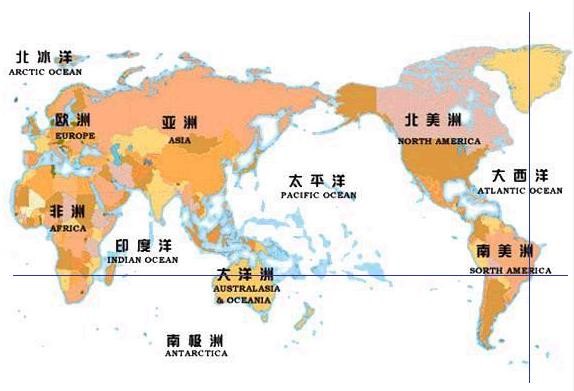Geisha / Rosa Geisha Coca Cauca Valley Hope Manor, Colombia
Hernando Tapasco's team, the lead botanist, set up a climate station on the estate to track weather data and help make harvest decisions. The data on the farm were collected continuously and analyzed once a week. After harvest, they will compare weather data, production data and cup test data and analyze the correlation. The harvesters of Rose Summer are strictly trained to collect only ripe cherry fruits and are paid by the day, unlike other manors by weight. In order to prevent workers from harvesting unqualified cherries in order to improve their performance, half of the harvesting workers have more than six years of experience. After the fruit is harvested, it will be sent to the central processing plant in Hope Manor, and each batch of rose will be marked and dealt with separately. First go through the drying stage three days ago in the sun field, and then move to the small tower to dry. Strict quality control is another key. There are 40, 000 to 45, 000 rose trees in Cerro Azul Manor, of which only 5-7000 can produce rose beans with the Cerro Azul brand.
The experiment and innovation of Hope Chateau on variety seems to be endless, constantly experimenting with different new varieties, in addition to the organic Kaddura, which used to make up the majority of the area of the Hope estate, from rose summer, organic rose summer, mocha, bourbon (including different red, yellow, Tekizik bourbon), pointed bourbon, Pakamara, San Bernardo and Pache, they really bring the chateau's serious attitude towards grape varieties to coffee. After the rose summer, from the Pacamara, Bourbon and even the pointed Bourbon produced by the Hope Manor, continue to create the surprise and admiration of the boutique coffee world.
In the naming of coffee, they like to label coffee products with the usual "Grand Cru" label of wine, and they also like to use "reserve" to distinguish top batches. For example, "AAA reverse Geisha" is used to refer to only two of the seven varieties in Cerro Azul, and it is also the most advanced, with the highest elevation (1800-2000 meters). According to the large amount of data and research accumulated by the manor, different forms will use different methods to give full play to the best flavor.

Their actions finally paid off. As early as the 2008 "Best Panama" competition, I hope that the La Cardeida rented by the manor will win the best Panama championship with a high score of 93.16. The best coffee treble of the year in 2012 was won by the three main growers of Rosa Rosa: Cerro Azul second, Las Magarita third and Buenos Aires Experimental Manor seventh.
According to the Panamanian Emerald Manor website, "Rose Summer" coffee seeds were taken from Geisha Mountain (Mount Rosa) in southwestern Ethiopia in 1931, transplanted to Kenya in 1931 and 1932, replanted in Tanzania in 1936 and introduced to Costa Rica in 1953. It is unknown when they will be introduced to Jaramillo Manor in Panama. After the Price Peterson family, who only knew the Emerald Farm (Hacienda La Esmeralda) of Panama, bought the Galamie Manor in 1996, they found that the coffee flavor on the edge of the estate was unique, so they took part in the 2004 Panama "COE" competition, never wanted to become famous, and won awards almost every year since. Later, it was identified that the variety originated from Ethiopia's "Rose Summer Mountain", so it was called "Rose Summer" coffee. Panamanian Rosa coffee once fetched a sky-high price of nearly $290 per kilogram.
The Herrera family of Hope Farm in Colombia introduced Rosa coffee from the Emerald Manor of Panama in 2007, but after years of trial efforts, it won the first prize in the COTY-Coffees of the Year held by the American Fine Coffee Association in Houston in April 2011.
Important Notice :
前街咖啡 FrontStreet Coffee has moved to new addredd:
FrontStreet Coffee Address: 315,Donghua East Road,GuangZhou
Tel:020 38364473
- Prev

Introduction to Ethiopian Coffee Culture and Flavor of Fine Coffee beans
The southern western highlands of Ethiopia (border of Shewa and Sidmo provinces) east of Jima, north of Sidamo, 3600-6200 feet above sea level are preferred by most Europeans and Americans, most of them are washed with water, their annual output is about 110000bags/60kg, most of the beans are round (15/16scr), the color is green and bluish, the export is mostly G2, the taste is similar to Yegashev, but the viscosity is thin, but
- Next

Flavor Manor of Kenyan Coffee beans introduction to Berman Manor in Kenya
Kenyan coffee is aromatic, full-bodied and fruity, with a rich and perfect taste. Kenyan coffee has a wonderful fruit flavor, tastes like BlackBerry and grapefruit, and is a favorite of many coffee gluttons. This coffee has an excellent medium purity, crisp and refreshing taste. It has a fresh flavor and is most suitable for drinking iced coffee in summer. Products
Related
- Does Rose Summer choose Blue, Green or Red? Detailed explanation of Rose Summer Coffee plots and Classification in Panamanian Jade Manor
- What is the difference between the origin, producing area, processing plant, cooperative and manor of coffee beans?
- How fine does the espresso powder fit? how to grind the espresso?
- Sca coffee roasting degree color card coffee roasting degree 8 roasting color values what do you mean?
- The practice of lattes: how to make lattes at home
- Introduction to Indonesian Fine Coffee beans-- Java Coffee producing area of Indonesian Arabica Coffee
- How much will the flavor of light and medium roasted rose summer be expressed? What baking level is rose summer suitable for?
- Introduction to the characteristics of washing, sun-drying or wet-planing coffee commonly used in Mantenin, Indonesia
- Price characteristics of Arabica Coffee Bean Starbucks introduction to Manning Coffee Bean Taste producing area Variety Manor
- What is the authentic Yega flavor? What are the flavor characteristics of the really excellent Yejasuffi coffee beans?

